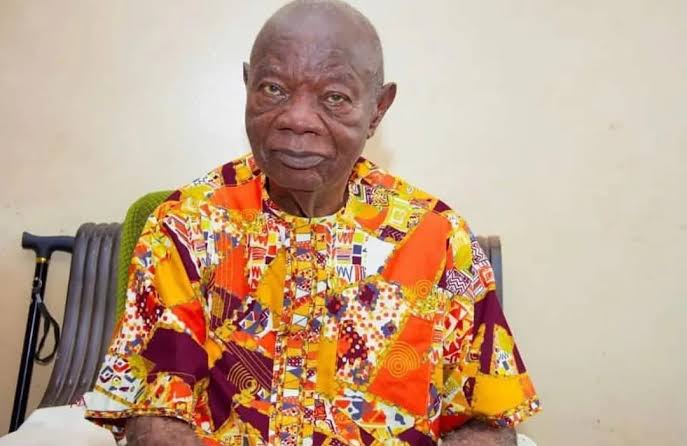ABUJA, Nigeria — The Secretary to the Government of the Federation (SGF), George Akume, has called on Benue State Governor Hyacinth Alia to formally submit the names of those he claims are sponsoring violence in the state.
This follows the governor’s recent public remarks implicating unnamed politicians in Abuja and the National Assembly in the ongoing security crisis in Benue.
The call was made through Terrence Kuanum, Special Adviser to the SGF, in a statement issued on Saturday, June 7, 2025. It was a direct response to Governor Alia’s appearance on Channels Television a day earlier, where he criticized Akume and his allies for allegedly remaining silent amid the worsening violence in the state.
READ ALSO: Adamu, Kategu, Sylva, Akume, Shehuri take oaths
In the interview, Governor Alia referenced an interim report from a judicial panel set up by his administration, which he said implicated political figures based in Abuja and within the federal legislature in organizing or supporting attacks in Benue communities.
Reacting to these claims, Kuanum strongly denied that Akume has been indifferent to the plight of Benue citizens. He argued that the SGF had been working discreetly through federal channels to address the insecurity affecting the state, rather than making public declarations.
“If the Governor of Benue State has expected that the SGF would be seen in the media discussing the efforts he has been making in that regard, then it betrays either a lack of understanding of governmental administrative procedure, or he is deliberately and unfortunately seeking to manipulate public sentiments against the SGF,” the statement read.
Kuanum emphasized that Akume has consistently relayed Benue’s security concerns to President Bola Tinubu through his role in the Federal Security Council. He noted that Akume’s responsibilities within the federal government often require behind-the-scenes contributions that may not be visible to the public but are nonetheless impactful.
The statement also defended the role of Benue’s federal lawmakers, particularly Senators Titus Zam and Emmanuel Udende, whom Kuanum said have frequently raised the issue of insecurity on the floor of the National Assembly. According to him, those efforts have helped initiate federal interventions through the Executive Council.
Addressing the interim judicial panel report cited by Governor Alia, Kuanum noted that such reports must go through an official review process, including the creation of a White Paper, before they can be considered the official position of the state government.
He argued that by choosing to speak publicly on the contents of an unofficial report, Governor Alia had taken on the responsibility of substantiating his claims at the federal level.
“His Excellency the Governor of Benue State must understand that his allegations and preemptive indictment of the persons so fingered now carry the weight of national security concern and must be treated as such,” Kuanum said.
“He should forward to His Excellency the President and to the Federal Security Council the names of those so indicted and their roles in sponsoring, aiding and abetting insecurity in Benue State as he claimed, and should also bring it publicly to the attention of the whole world who those enemies of Benue State are.”
This exchange between the two political figures has reignited tensions that have been simmering beneath the surface in Benue’s political landscape.
Although both men are members of the All Progressives Congress (APC), their relationship has been strained for months. In April 2024, the Tiv Traditional Council brokered a reconciliation effort aimed at mending their differences. However, recent developments suggest that the rivalry remains unresolved.
Observers say the public disagreement underscores deeper power struggles within the state, particularly over control of the party structure and influence in federal decision-making.
Meanwhile, the people of Benue continue to bear the brunt of the escalating violence, especially in rural areas where communities have come under frequent attacks by suspected armed herders, bandits, and other non-state actors.
With lives and property at stake, many residents are now urging both state and federal leaders to put political differences aside and focus on concrete actions to restore peace and security in the region.





